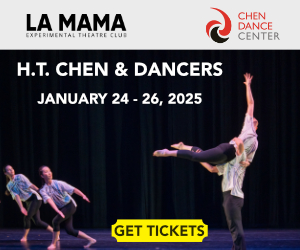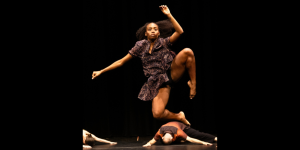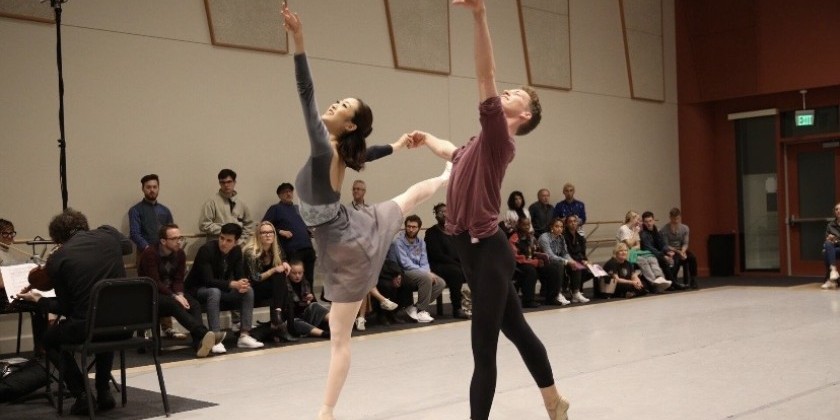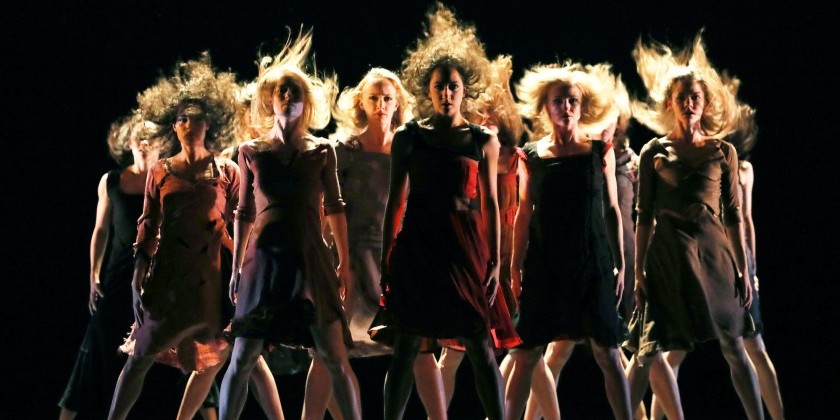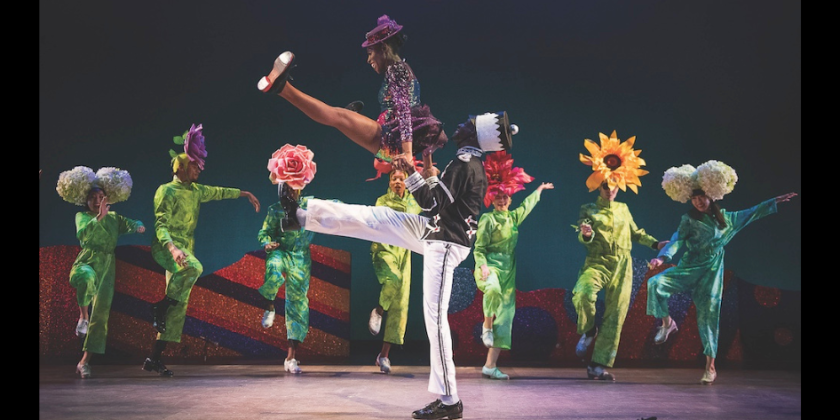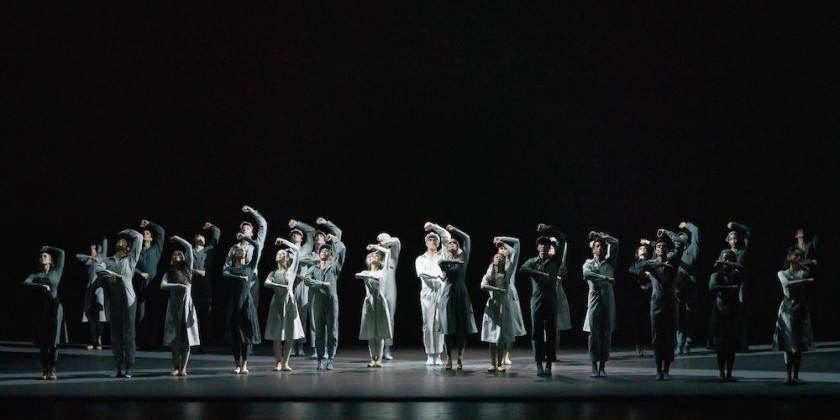SUMMER IMPRESSIONS: The Joyce Theater’s UNITE Ballet Festival Curated by ABT Principal Calvin Royal III
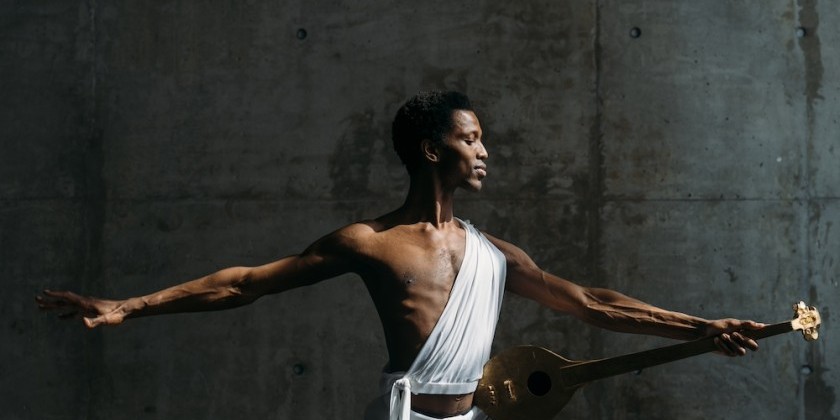
WHAT: UNITE's Opening Night Program One (full credits)
WHERE: The Joyce Theater
WHEN: August 13 - 18, 2024
WHEN: August 13th,2024
It was its starry array of ballet dancers that ignited UNITE, the 2024 iteration of The Joyce Theater’s summer Ballet Festival. A week-long, two-program event curated by American Ballet Theatre principal Calvin Royal III, it provided thrilling opportunities to see performers from big ballet companies — not from afar in the huge venues where they usually dance — but up-close-and-personal in the intimacy of The Joyce Theater.
Plus, it revealed new aspects of these dancers, as the ten-piece show I attended (the opening night of Program One) featured choreography and design by individuals heretofore admired mainly as performers. Yet sadly, though book-ended by two George Balanchine works, choreographically the festivities proved less than gripping.
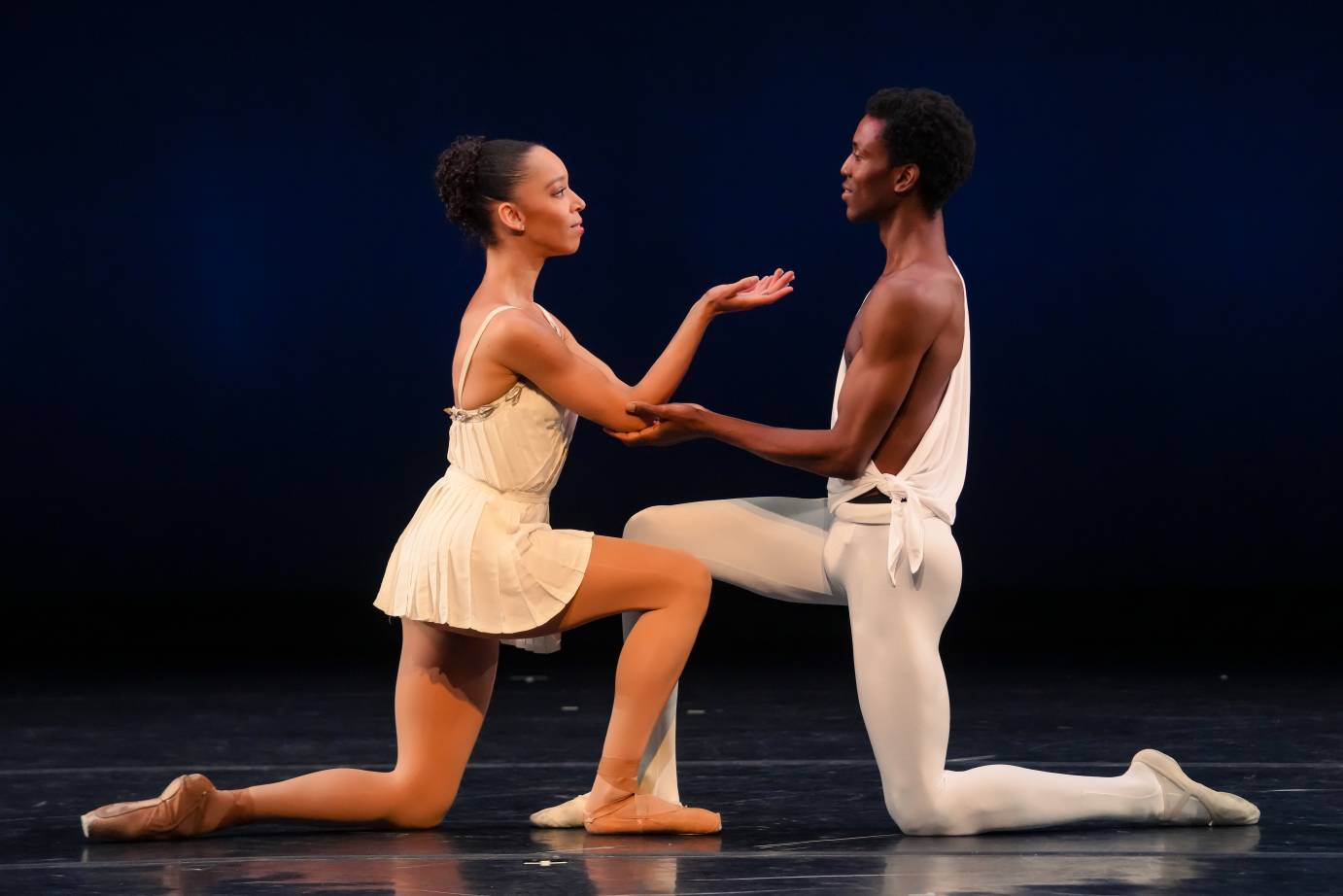
The program’s choreographic highlights were its opener, Balanchine’s Apollo, and the world premiere of Petalwing, a delectable duet for two women, choreographed by Adriana Pierce, a former ballet and Broadway dancer, and founder of the traditional-gender-roles-dismantling initiative Queer the Ballet.
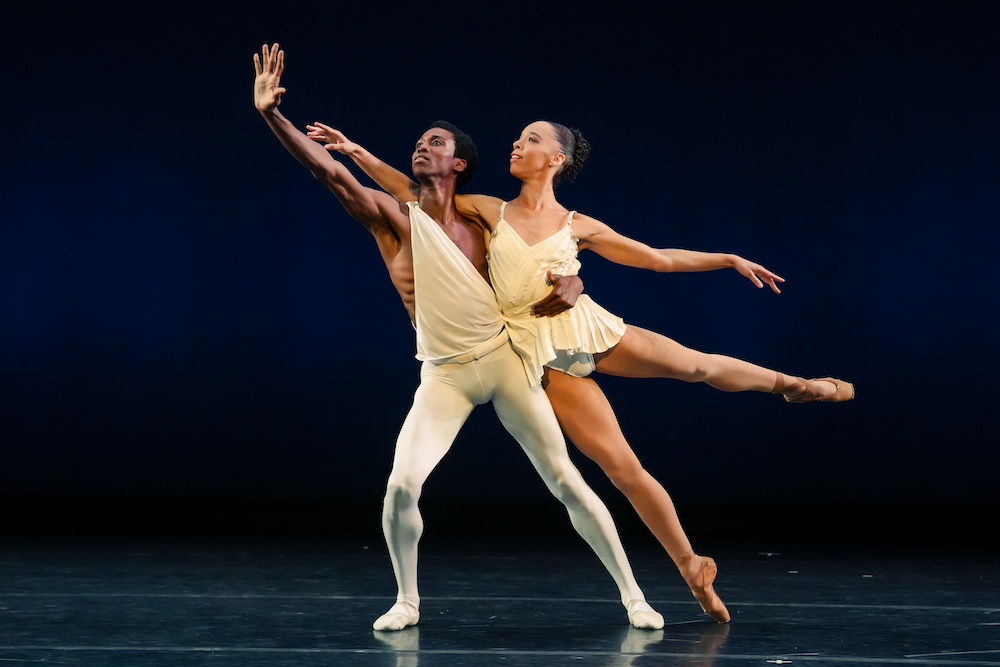
Excerpting just its pas de deux and title character’s solo, Boston Ballet principal Chyrstyn Fentroy and Royal proffered an affecting interpretation of Apollo. Theirs was more emotional than the pristine, chillier approach one typically gets from the dancers of New York City Ballet. Fentroy smiled playfully at times, and when executing those expansive port de bras while perched prone atop the back of Apollo’s neck, her movements exuded a curvy prettiness — descriptors I’m not used to employing when writing about this famously spare ballet. Embodied by Royal and Fentroy, Apollo appeared less startlingly modernistic than usual.
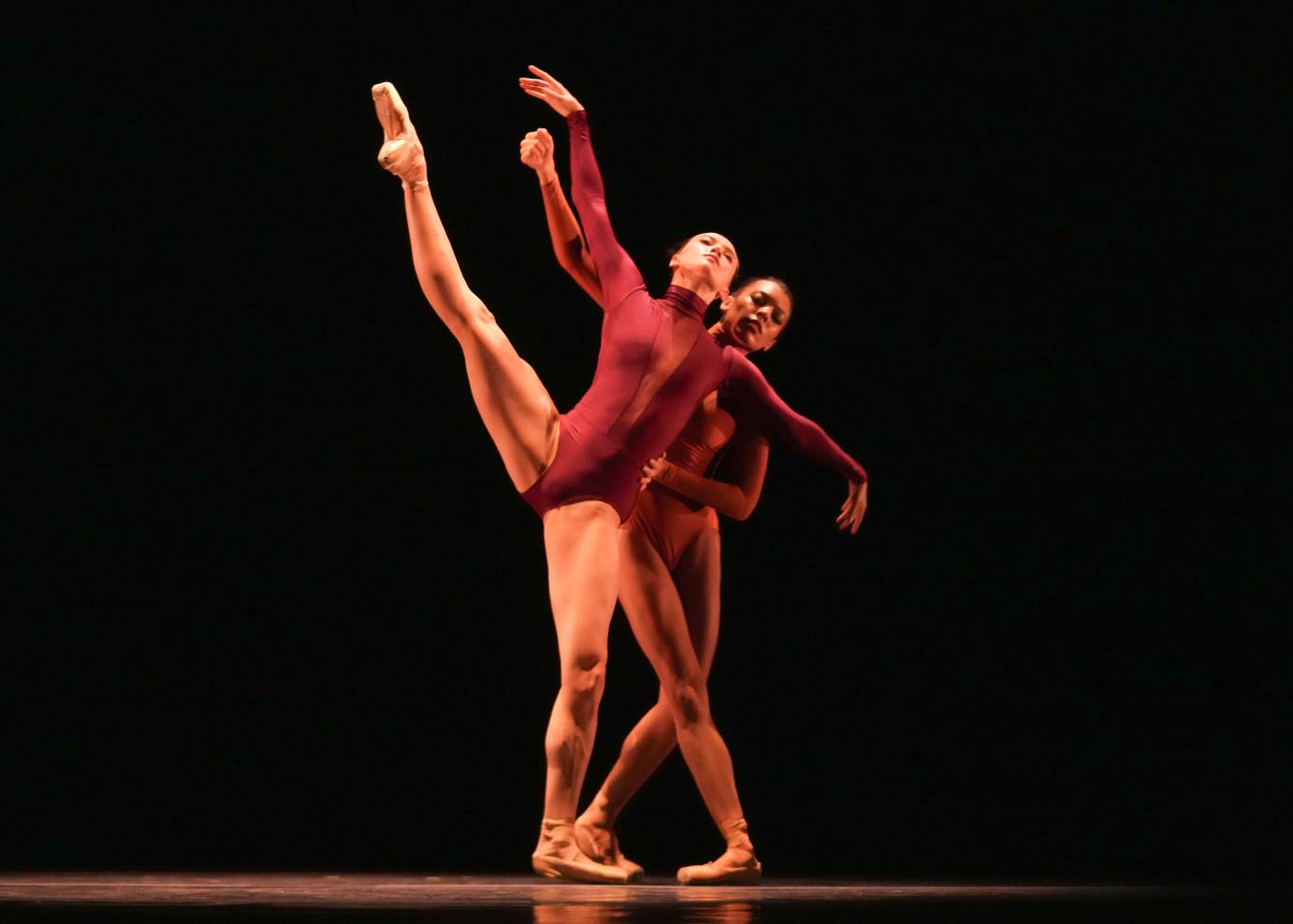
Well-built of tight, intertwining partner-work — of the weight-supporting ilk rarely made for a female couple — Petalwing’s inventive choreography sits with satisfying independence above the purring guitar music of its accompanying David K. Israel score. Evoking a sense of unbreakable friendship, more so than romance, the pioneering work was persuasively danced by ABT corps members Ingrid Thoms and Kyra Coco, flatteringly clad in gorgeous long-sleeved, turtleneck leotards designed by Sylvie Rood — one cranberry-colored, the other burnt orange, and each with a subtly transparent panel that stretches across the collarbone before plunging into a waist-deep “V.”
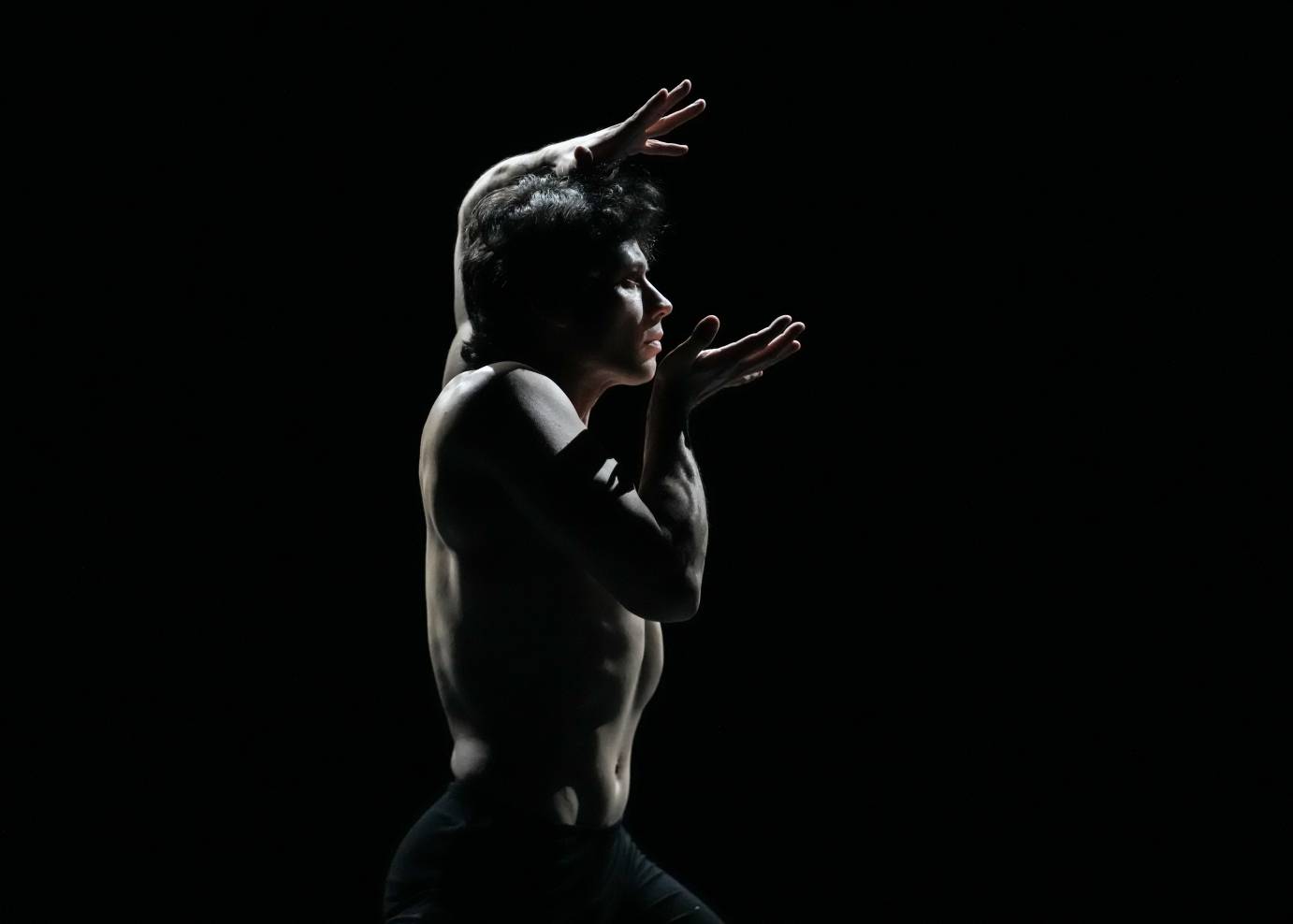
Far richer in great performing than in compelling choreography, the evening gave spotlight to some of the most impressive dancers gracing ballet stages today. My personal favorite, ABT principal Herman Cornejo, performed excerpts from Flight, an impressionistic solo choreographed by Jae Man Joo. While it’s hard to know exactly what’s going on in this ballet, an air of mystery is evoked. Some gestures reference eyes and vision, while others suggest a sense of self extending internally and externally. We feel anguish, surrender, and agitation. With his unparalleled interpretive clarity, flow, attack, and expressivity, Cornejo held us riveted throughout.
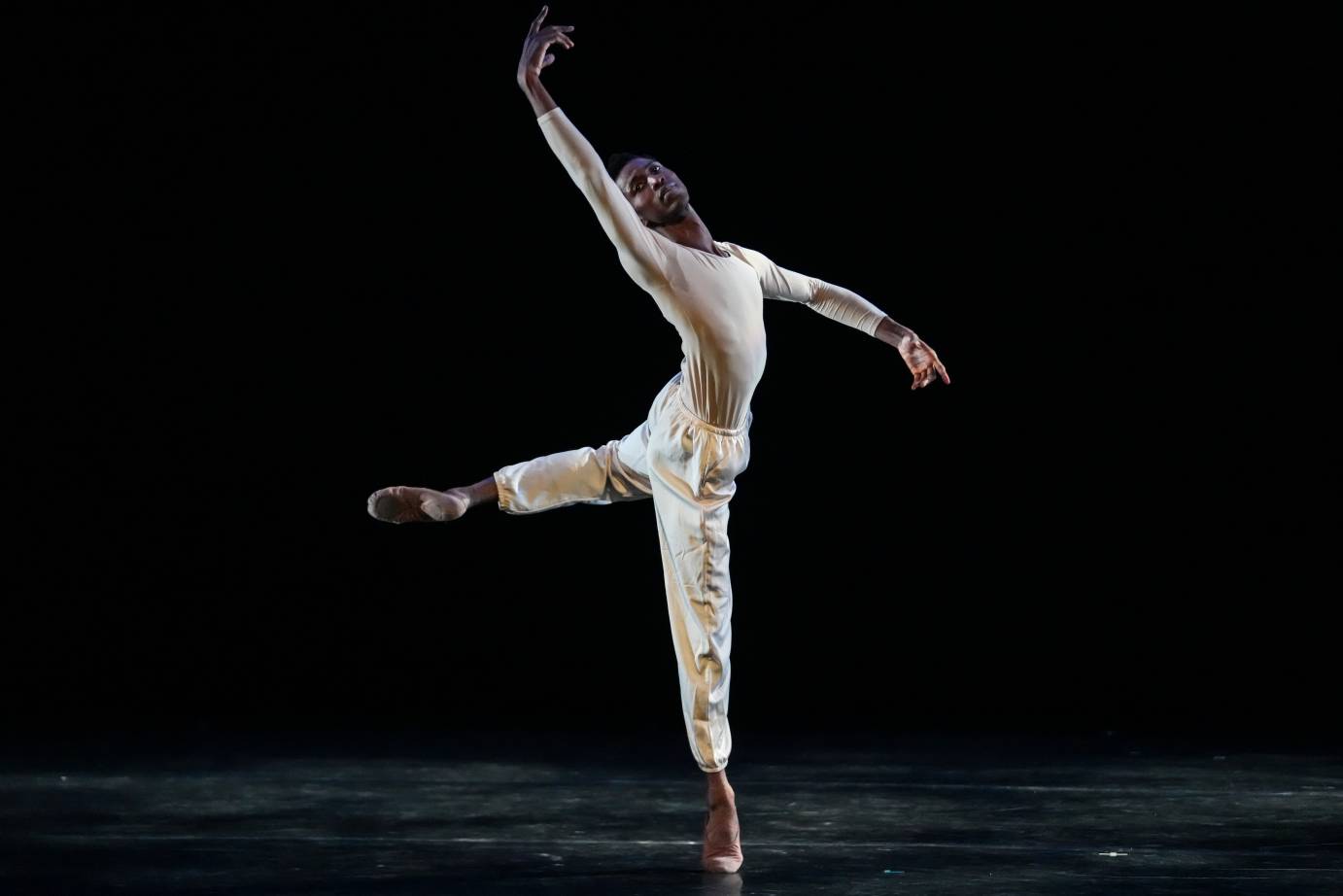
Performing his self-choreographed solo Moonlight, set to Debussy’s Clair de lune, played live by his husband, pianist Jacek Mysinski, Royal had us swooning over the beauty of his long, lyrical lines, and exuded a warm likability. Though choreographically unmemorable, his dance felt very personal, revelatory, and generous.
Also exquisitely performed was an excerpt from Single Eye, choreographed by Alonzo King, and danced by LINES Ballet principals Adji Cissoko and Shuaib Elhassan. Liquidly rendering King’s signature stretched-to-the-max extensions with wowing finesse, Cissoko and Elhassan demonstrated the heights to which contemporary ballet technique has ascended.
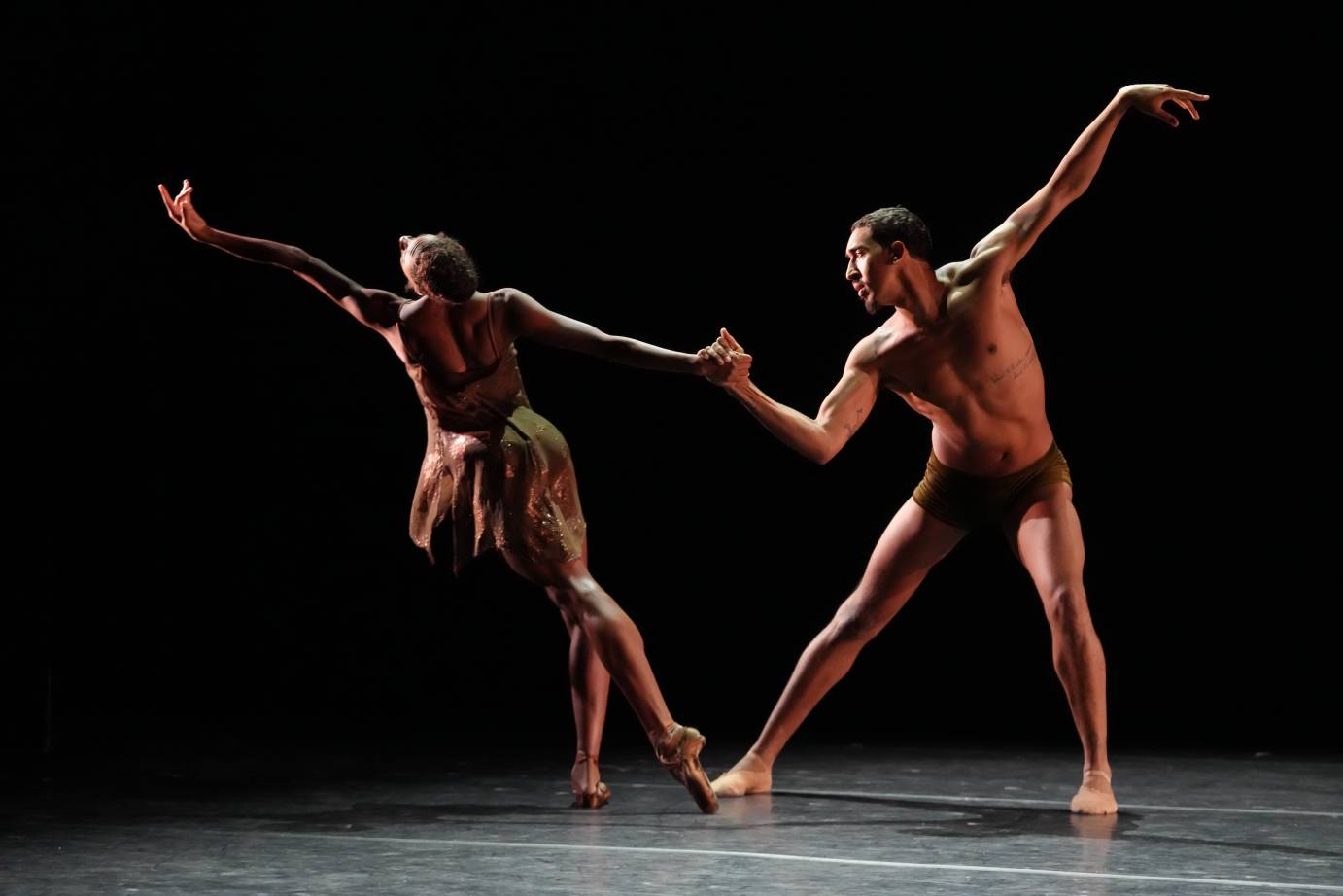
Ballet principals Adji Cissoko and Shuaib Elhassan in Alonzo King's Single Eye. Photo: Steven Pisano
The biggest ovation of the evening, however, went to the performance of the bedroom pas de deux from Kenneth MacMillan’s Manon, spectacularly danced by Paris Opera Ballet étoiles Sae Eun Park and Paul Marque. Technically flawless and dramatically moving, they served up the kind of passionate classical-ballet storytelling that I think the show’s audience (largely ABT fans) really wanted to see.
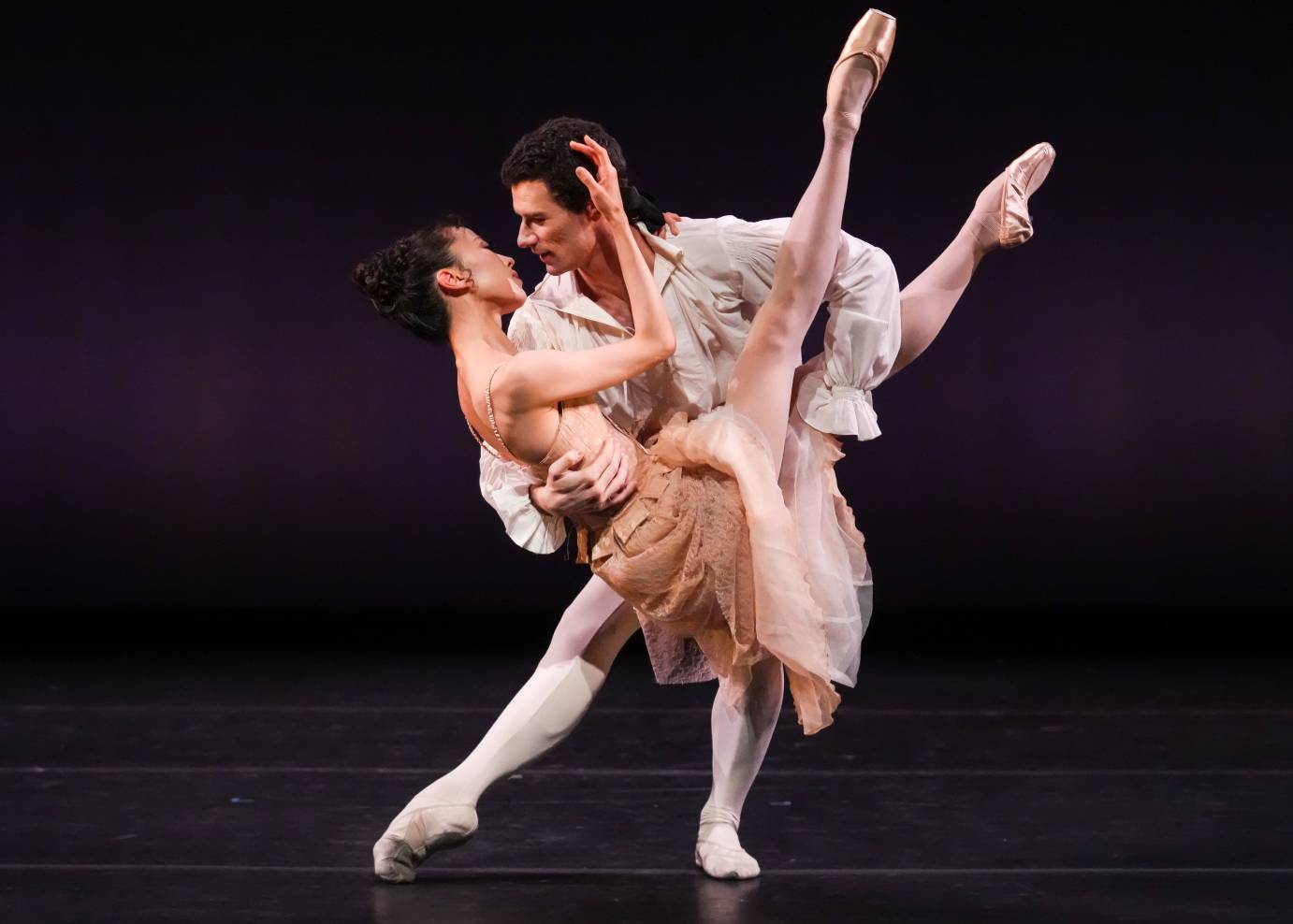
Sae Eun Park and Paul Marque in Kenneth MacMillan’s Manon. Photo: Steven Pisano
Though sparked by the bravura dancing of top-flight ballet technicians, the quartet Night Pieces (choreographed by ABT’s Duncan Lyle, who also designed its elegant costumes), the duet Rozzi Suite (choreographed by ABT principal James Whiteside), and the world premiere of the solo Impatiens (choreographed and performed by ABT corps member Aleisha Walker) were not among the evening’s most successful works.
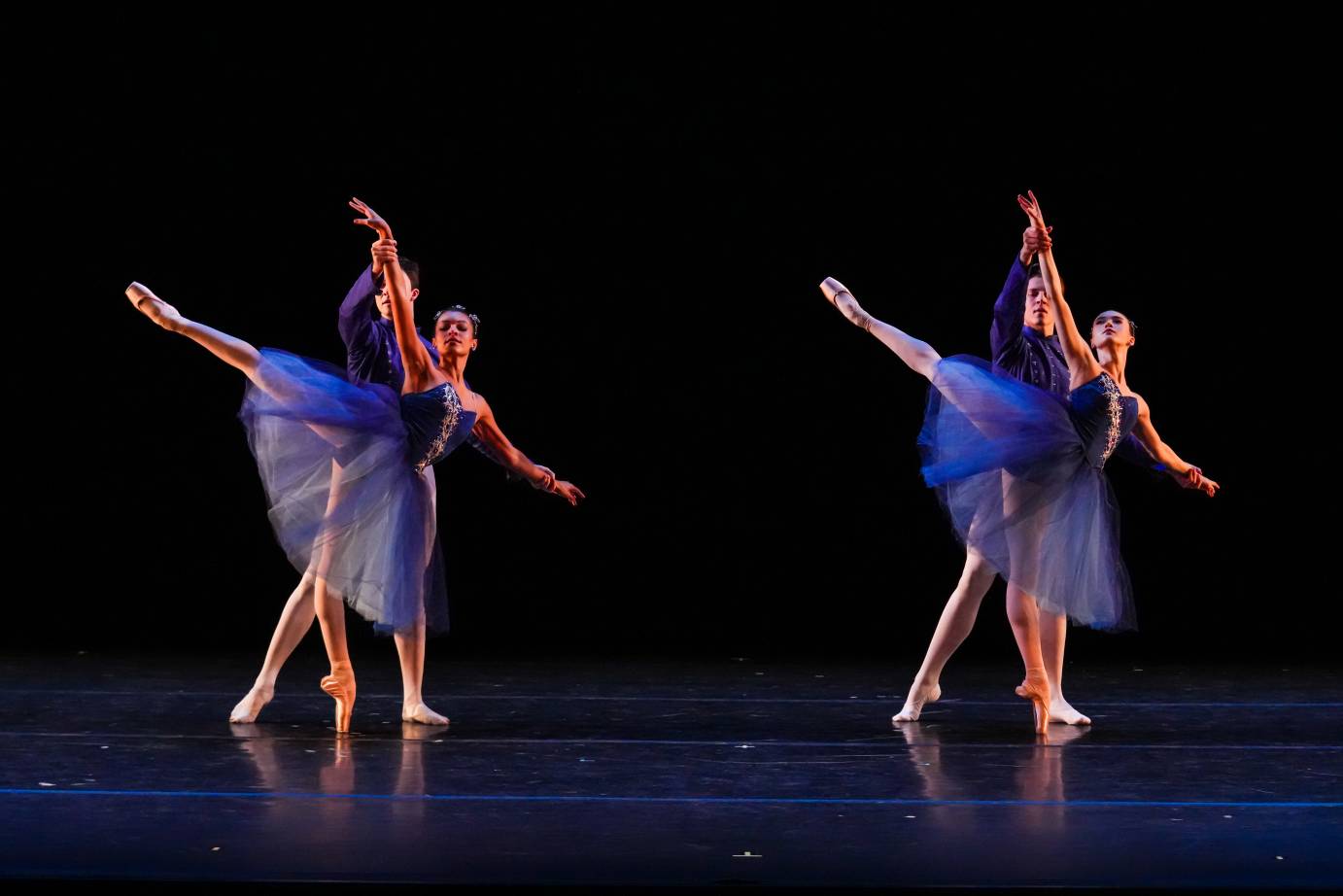
Impeccably performed by his fellow ABT corps dancers Coco, Thoms, Tristan Brosnan, and Duncan McIlwaine, the traditional classical movements of Lyle’s Night Pieces appear out of sync with the ballet’s accompanying Robert Schumann score. The choreography doesn’t seem to hear the compositional structures nor feel the moods of the Romantic music. Strict classroom-exercise-like movement sequences begin, peak, and end with little discernible correlation to Schumann’s phrasing. And when the music softens into gentle, whispers of sound, the choreography continues to deliver its same flashy combinations of fast turns, grand leaps, and lifts. Only in the frisky passages of petite allegro steps during the work’s final section does the choreography find its musicality.
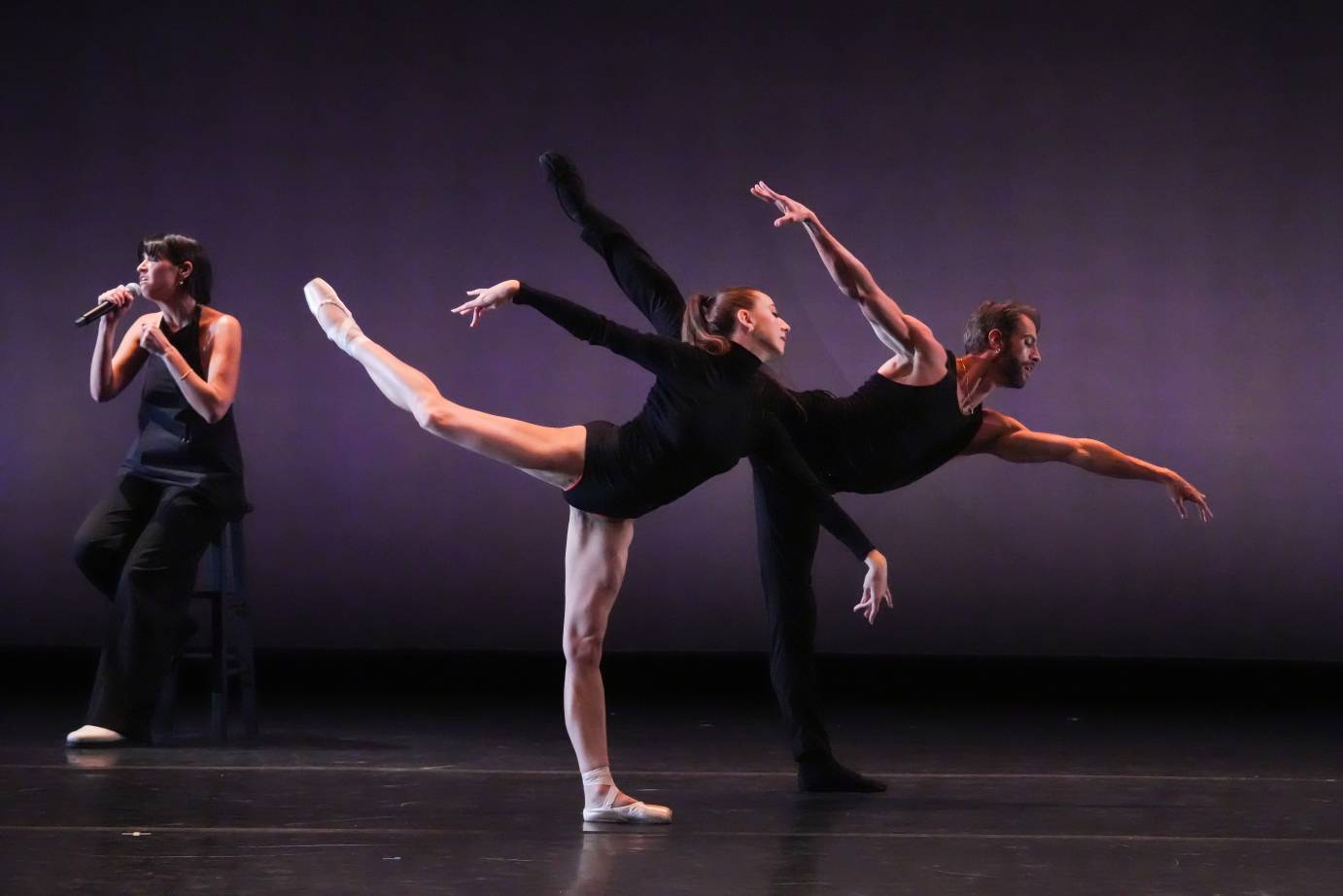
Driven by the live, onstage performance of its soul songwriter-singer Rozzi, around whom Whiteside and ABT principal Isabella Boylston dance in alternating solo turns, Rozzi Suite also suffered from confusing music-movement relationships. Though Whiteside begins by interspersing his jaw-dropping displays of classical technique with finger snaps, pop-dance moves, and servings of sassy attitude — and his crisp legwork finds keen kinship with the rhythms of the suite’s opening song — as the piece progresses, an emotional gulf evolves between the choreography and Rozzi’s singing. While delighted by the dancers’ electrifying exhibitions of physical prowess, I kept asking myself, why are they charging about like crazy to such soulful, bluesy music?
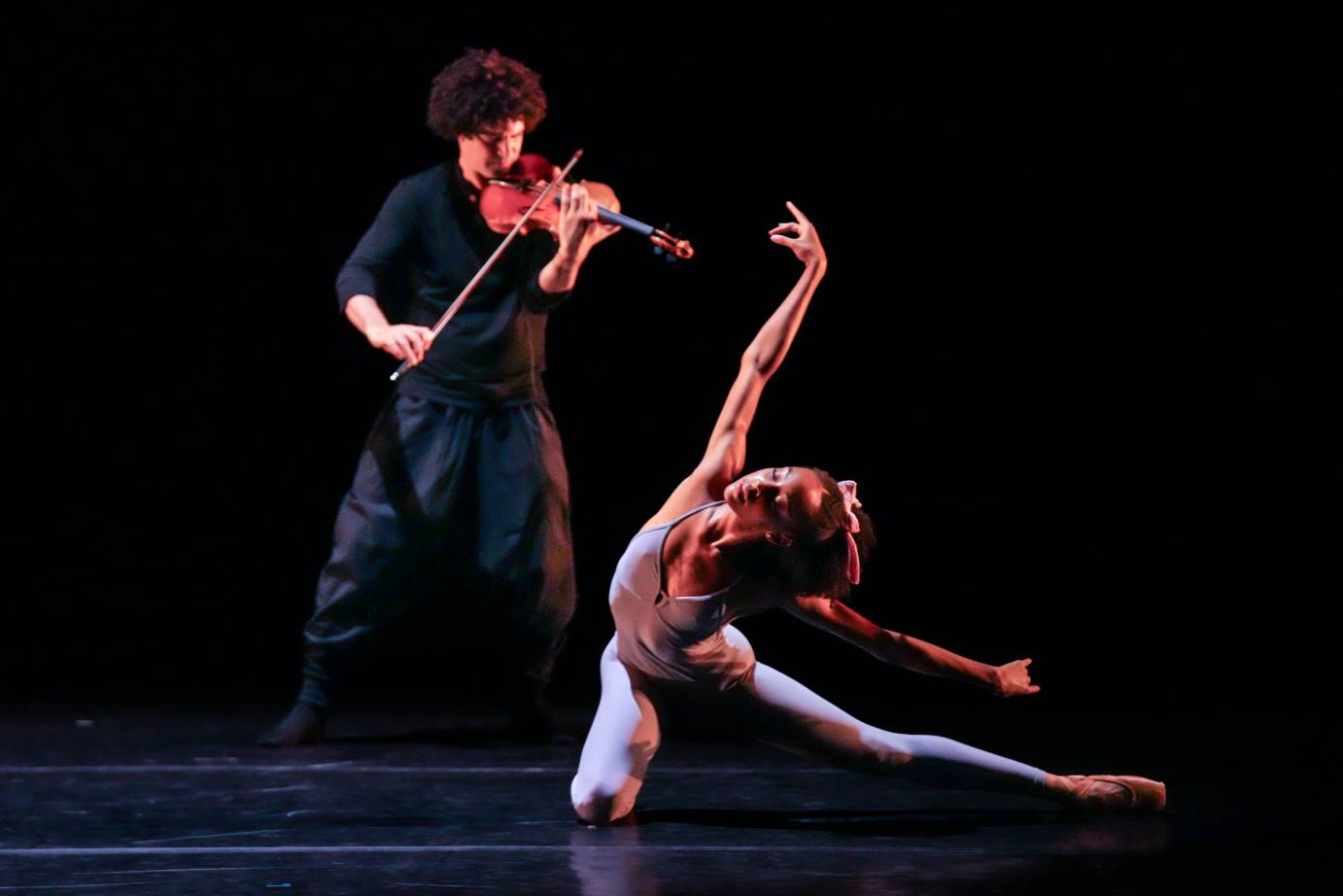
Also sparked by the live, onstage presence of its accompanying musician — in this case Israeli violinist Kobi Malkin, playing Nathan Milstein’s exuberant Paganiniana (Variations) for Violin Solo — Impatiens starts off brilliantly, with Walker’s expressive body capturing the racing melodic lines, accents, scrapes, and tensions of the violin sounds. One felt a wonderful integration of impulses between the two performers as Malkin circled Walker while she danced responsively to his music-making. But about half-way through, the choreography runs out of inspiration and settles into repetitious arm and upper-body movements, mimicking the music without furthering its aesthetic statements.
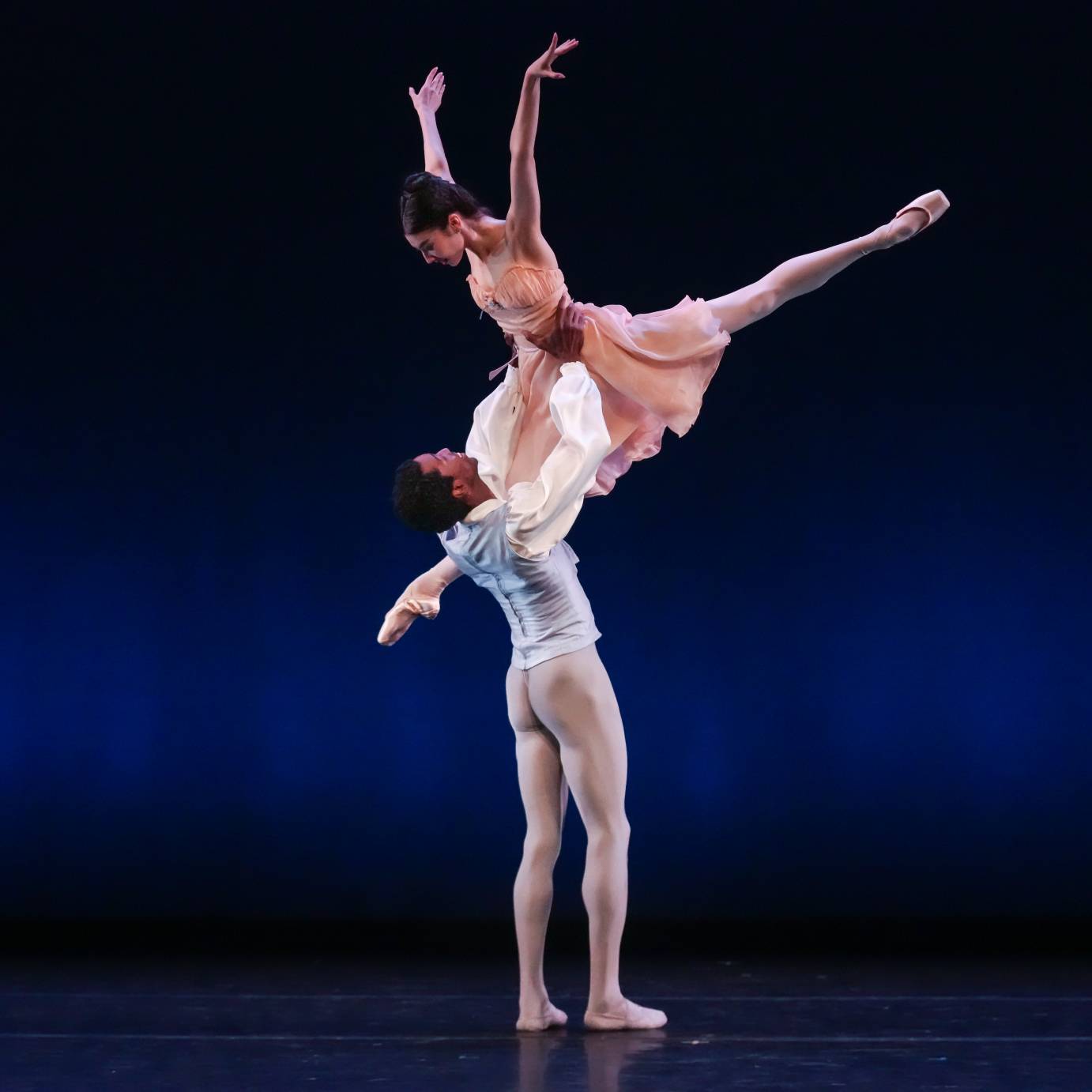
Aptly, the evening closed with the speedy Balanchine showpiece Tchaikovsky Pas de Deux, beloved for its sparkling phrases of virtuosic dancing. Performed by Royal and recently-promoted ABT principal Chloe Misseldine, all went swimmingly until the final few moments when, unfortunately for a program designed to show off the strengths of its dancers, Misseldine appeared to tire, falling out of her final fouetté turns, and having to reach her hand to the floor to steady herself at the bottom of a hurling fish dive. But no worries. It was just a reminder of how fully and ferociously these stellar ballet dancers give their all to entertain us.



